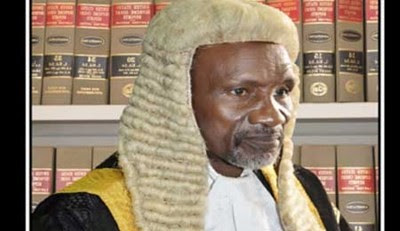 |
| Mahmud Mohammed, Chief Justice of Nigeria |
In the latest development to the corruption saga that has enveloped the judicial arm of government, the Federal Government is taking a firm stand on what it expect the accused judges to do.
The Presidency has maintained that judges facing bribery allegations must step aside ahead of their trial.
According to The Nation the presidency made its position known on Sunday night, October 23, when it stated that the affected judges should resign to clear their names instead of facing trial while on the bench.
The Presidency also faulted Chief Justice Mahmud Mohammed’s claim that the judiciary had issues with the DSS, not the federal government. It was also learnt that the DSS refused to release the evidence against the judges under probe to the National Judicial Council (NJC) in order not to prejudice their trial.
A top government source, who spoke in confidence said: “The government has made its position known to the CJN on why the judges should step aside ahead of their trial. The government will not yield ground on this.
“If we go ahead to arraign them in court, the same CJN and NJC will accuse the government of desecrating the Judiciary. The right step now is to allow the judges to face trial and clear the allegations against them.
“It is unfortunate that what the CJN told the government on how to handle the case of the judges was different from the statement he issued.
“We are suspecting that the CJN might be under pressure from his colleagues or he wants to leave the fate of the judges to his successor.
“He cannot rationalise by making a distinction between the Federal Government and the DSS. The government was in support of the sting operations of the security agency. So, the DSS did not act unilaterally.
“We will not take up issues with the CJN because the Nigerian Bar Association(NBA), some former Supreme Court Justices and the Body of Benchers have supported the position of the government that the judges should step aside.”
In addition, the National Judicial Council (NJC) has formally barred judges and court staff from soliciting or accepting gifts from other arms of government as part of measures to enhance the independence of the judiciary.





















